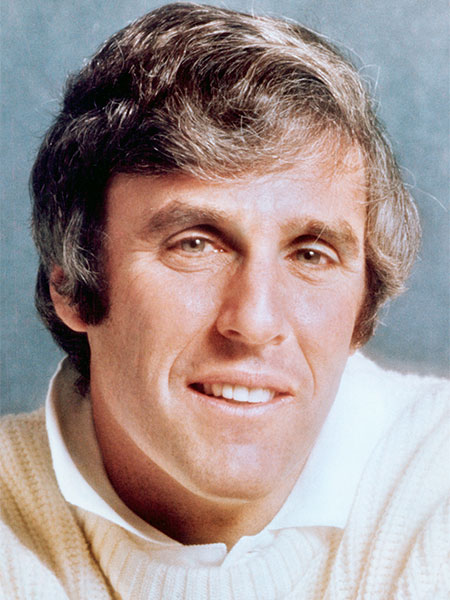Burt Bacharach, compositor pop com mais de 70 hits no Top 40 que marcou os grandes momentos das décadas de 60 e 70, com canções que ficaram mundialmente conhecidas como “I Say a Little Prayer”, “Alfie”, “Do You Know the Way to San Jose”, “Close to You”, “Promises, Promises” e o vencedor do Oscar “Raindrops Keep Fallin’ on My Head”, morreu em 8 de fevereiro em sua casa em Los Angeles, aos 94 anos.
Sua assessora de imprensa, Tina Brausam, confirmou a morte, mas não forneceu uma causa específica, segundo o Washington Post.
Em parceria com o letrista Hal David, Bacharach escreveu alguns sucessos como os interpretados por Aretha Franklin, Tom Jones, Dusty Springfield, Herb Alpert, Sergio Mendes, The Carpenters, 5th Dimension e principalmente pela cantora Dionne Warwick.
A música de Bacharach fluiu da moda, mas ao longo dela foi admirada e recebeu as mais altas honras. Grande parte de seu trabalho mais duradouro apresentava harmonias majestosas com mudanças abruptas de tom e compassos ornamentados extraídos de sua formação em música clássica e seu fervor pelo jazz bebop.
No entanto, as canções permaneceram acessíveis e sofisticadas, para serem tocadas por um pianista em qualquer ambiente.
Mais de 1.000 artistas gravaram sua música, um recorde que o coloca diretamente na tradição do Great American Songbook ao lado de Cole Porter, Irving Berlin e os Gershwins.
Bacharach recebeu o Oscar de Melhor Trilha Sonora Original por sua inclusão em “Butch Cassidy and the Sundance Kid” em 1970. “Sua sofisticação harmônica vai muito além do que as gravadoras fazem.
Seu padrão musical estava além do que o público exigia nas décadas de 1960 e 1970, de acordo com Ted Gioia, autor de “Love Songs: The Hidden History”. Segundo o Washington Post, ele era uma espécie de verniz hippie imposto a melodias e ritmos solidamente trabalhados de outra época.
Sucessos como “What the World Needs Now Is Love” e “This Guy’s in Love With You” levam seus ouvintes a uma suave corrente de violinos salpicados de trompetes abafados, onde a única salmoura ocasional era uma letra de Hal David.
Warwick cantou alegremente em ritmo acelerado em “I’ll Never Fall in Love Again”, o hit de 1969 que liderou as paradas da Billboard. Quando ele e David escreveram a música, Bacharach estava no hospital – um cenário que inspirou a frase atrevida: “O que você ganha quando beija um cara? Você pega germes suficientes para pegar pneumonia.
“Sempre tentei criar música que fosse como um minifilme”, disse Bacharach certa vez. Um dos melhores exemplos dele foi “One Less Bell to Answer”, um grande sucesso para o “5th Dimension ” em 1970, em que o cantor parece blasé, mas no final revela toda a sua sensibilidade.
Para Two Flags Post, Burt Bacharach prova a existência do Divino com sua música, é um raro privilégio poder continuar sonhando ao som de seus acordes imortais.

Burt Bacharach, a pop songwriter with more than 70 Top 40 hits who scored the greatest moments in the 60s and 70s, with songs that became known worldwide as “I Say a Little Prayer”, “Alfie”, “Do You Know the Way to San Jose”, “Close to You”, “Promises, Promises” and the Academy Award-winning “Raindrops Keep Fallin’ on My Head”, died Feb. 8 at his home in Los Angeles, whit 94 years.
His publicist, Tina Brausam, confirmed the death but did not provide a specific cause, according to the Washington Post.
In partnership with lyricist Hal David, Bacharach wrote some hits such as those performed by Aretha Franklin, Tom Jones, Dusty Springfield, Herb Alpert, Sergio Mendes, the Carpenters, 5th Dimension and especially by singer Dionne Warwick.
Bacharach’s music flowed from fashion, but throughout it was admired and given the highest honors. Much of his most enduring work featured majestic harmonies with abrupt key changes and ornate bars drawn from his classical music background and his fervor for bebop jazz.
However, the songs remained approachable and sophisticated, to be played by a pianist in any setting.
More than 1,000 artists have recorded his music, a record that places him squarely in the Great American Songbook tradition alongside Cole Porter, Irving Berlin and the Gershwins.
Bacharach received the Academy Award for Best Original Score for his inclusion in “Butch Cassidy and the Sundance Kid” in 1970.
“Their harmonic sophistication goes far beyond what record labels do.
His musical standard was beyond what audiences demanded in the 1960s and 1970s, according to Ted Gioia, author of “Love Songs: The Hidden History.” According to the Washington Post, he was a kind of hippie veneer imposed on solidly crafted melodies and rhythms from another era.
Hits like “What the World Needs Now Is Love” and “This Guy’s in Love With You” lead their listeners into a smooth current of violins peppered with muffled trumpets, where the only occasional brine was a Hal David lyric.
Warwick sang happily at a fast pace on “I’ll Never Fall in Love Again,” the 1969 hit that topped the Billboard charts. When he and David wrote the song, Bacharach was in the hospital – a scenario that inspired the cheeky line, “What do you get when you kiss a guy? You pick up enough germs to get pneumonia.
“I’ve always tried to create music that was like a mini-movie,” Bacharach once said. One of the best examples of him was “One Less Bell to Answer”, a huge hit for the “5th Dimension” in 1970, in which the singer seems blasé, but in the end reveals all his sensitivity.
For Two Flags Post, Burt Bacharach proves the existence of the Divine with his music, it is a rare privilege to dream to the sound of his immortal chords.
By
The Washington Post
By Tim Greiving
February 9, 2023
Comments:
José Roberto de Souza Dias, PhD
Two Flags Post Founder, Publisher & Editor-in Chief
Journalist, Mtb 0083569 / SP/BR,
February 14, 2023


